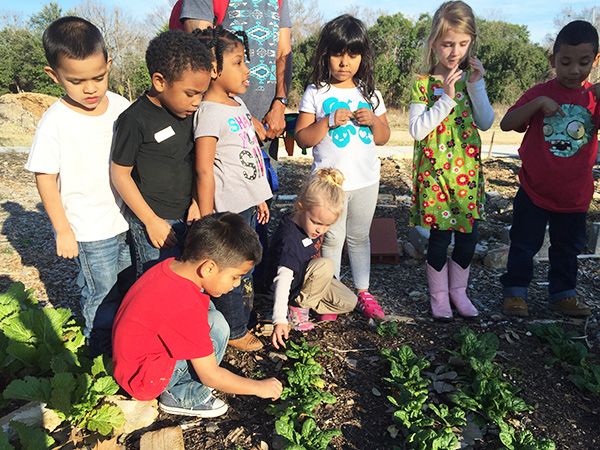We live in an era when children and adults spend less time in nature and know little about the source of their food. At the same time, an unprecedented number of children are suffering from diet-related disease caused by unhealthy diets high in processed food and low in fresh fruits and vegetables. A growing body of research demonstrates that a lack of time spent outdoors in nature is having a negative developmental impact on our youngest members of society. Gardens are filled with potential for teaching students how eating nutritious food and spending time in nature are part of a healthy lifestyle.
School gardens provide a powerful opportunity to improve the quality of life for children. Multiple studies have proven the benefits of school gardens. Children who participate in school gardens have an increased openness to, preference for, and intake of fruits and vegetables. Children also have increased academic performance and attitudes towards learning. School gardens can also improve behavior at home and school. Research has shown that green settings can improve alertness in children with attention deficit disorder. Children who spent time in school gardens also showed more appreciation for the environment.
Gardens are effective and interactive teaching tools, and almost any subject can be taught using the garden, for children of any age and grade level. A broad selection of garden curricula is available for many regions around the U.S., and many of them align with teaching standards. Finally, school gardens provide a context to teach students to be advocates for themselves, their communities, and the earth. By cultivating a connection with nature, gardens foster a sense of environmental stewardship. By providing a context for conversations about the food system (the way food is produced, distributed, prepared, consumed, and disposed of or recycled), gardens encourage students to think critically about the food they eat and gain life-long skills in making healthy choices.
We hope you consider sharing the benefits of school gardens far and wide and continue to support our work to help schools start and sustain school gardens for the health and wellness of their students.

